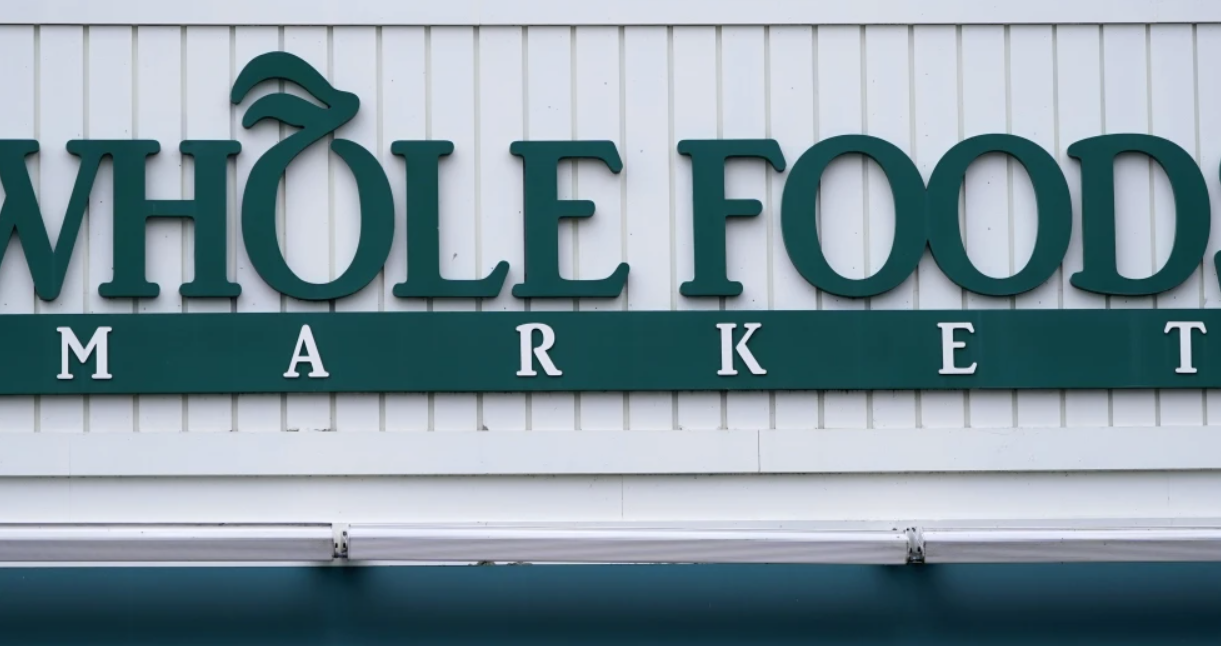Workers at a Whole Foods Market in Pennsylvania made history on Monday by voting to unionize, becoming the first group of employees to win a labor victory at the Amazon-owned grocery chain.
At the Philadelphia store, 130 employees — roughly 57% of those who voted — supported joining a local chapter of the United Food and Commercial Workers International Union (UFCW) to engage in collective bargaining. The National Labor Relations Board, which supervised the election, reported that 100 workers opposed the unionization.
“This fight is far from over, but today’s victory is a crucial step forward,” said Wendell Young IV, president of UFCW Local 1776. “We are prepared to bring Whole Foods to the bargaining table and negotiate a fair first contract that addresses the workers’ needs and priorities.”
This outcome marks the first successful attempt to introduce organized labor into Amazon’s grocery sector, which includes Whole Foods, Amazon Fresh, and Amazon Go stores. Amazon, which acquired Whole Foods in 2017 for $13.7 billion, has worked to block unionization efforts across its stores, including those of delivery drivers and warehouse employees.
Almost three years ago, Amazon warehouse workers in Staten Island, New York, voted to have a new union represent them in labor discussions, which has since aligned with the Teamsters. However, Amazon has declined to engage in negotiations with the union.
Employees at the Whole Foods store in downtown Philadelphia began organizing efforts early last year, according to Young. They joined forces with UFCW Local 1776 in late summer and filed a petition with the National Labor Relations Board in November to request an official election.
The workers at the store hoped that a successful vote would lead to improvements such as higher wages, more affordable healthcare, child care assistance, better work-life balance, and improved working conditions.
After the votes were counted on Monday night, Whole Foods issued a statement expressing pride in offering competitive pay, great benefits, and career advancement opportunities to all employees.
“We are disappointed by the outcome of this election, but we are committed to maintaining a positive work environment at our Philadelphia Center City store,” the company said.
Whole Foods highlighted that it offers store workers a competitive average hourly wage and benefits like 401(k) plans and “on-demand” mental health support. While the company did not disclose its average hourly rate, some job listings indicate that employees can earn $16 per hour or more.
Following the filing of the election petition, workers at the Philadelphia store were given free snacks, and the company repainted their break rooms, according to Young.
Earlier this month, UFCW Local 1776 filed charges with the National Labor Relations Board (NLRB), accusing the company of unfair labor practices, including the alleged firing of a worker in retaliation for union activities. The union also claimed that supervisors told employees they would receive higher pay if they voted against the union. Whole Foods denied that the worker was fired due to union-related reasons.
The union has also accused Whole Foods of withholding region-wide wage increases from employees at the Philadelphia store due to their involvement in union activities.
Whole Foods admitted that it did not provide wage increases to workers at the Philadelphia location, even though other stores received raises as part of a quarterly review. The company argued that offering wage adjustments before the union election would have been illegal, a claim that Young disagreed with.
The company explained that it delayed the wage increases until after the election to avoid the appearance of attempting to sway the vote with pay raises.
Amazon, based in Seattle, has consistently opposed unionization efforts among its workers. Before Christmas, Amazon delivery drivers went on strike in several U.S. cities, pressuring the company to either recognize them as unionized employees or meet demands for their first labor contract.
Next month, workers at an Amazon warehouse in North Carolina are set to vote on whether they want to be represented by a new union, Carolina Amazonians United for Solidarity and Empowerment.
The retail giant has taken legal action against the structure of the National Labor Relations Board (NLRB). Amazon claims that the federal agency interfered in the 2022 union election at its Staten Island warehouse, particularly by filing a lawsuit to reinstate a fired organizer just before the voting started.














